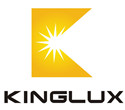| TEL:
+86 510 82123195
|
| Mobile: |
+86 18168862789
|
| FAX:
+86 510 84602998
|
| Email: |
info@kingluxlens.com
|
| MSN:
kingluxlens@hotmail.com
|
| Skype:
kingluxlens
|
| Q Q:
2852820700,2852820701,2852820699
|
|
|
| |
Company News
|
Current Location: Home >
News >
Company News
|
|
advantages of LED glass lenses in various applications
|
 |
LED glass lenses offer several advantages in various applications:
Directional Light Distribution: LED lenses are designed to control and direct the light emitted by LEDs, providing a more focused and directional beam. This helps in achieving better illumination efficiency and reducing light wastage.
Optical Efficiency: The design of LED glass lenses is optimized for optical efficiency, ensuring that a higher percentage of light generated by the LED source is effectively utilized. This can result in improved luminous efficiency.
Beam Shaping: LED lenses can shape the beam of light emitted by LEDs, allowing for customization of light distribution patterns. This is particularly useful in applications where specific lighting patterns are required.
Color Mixing: In applications where color mixing is important, such as in stage lighting or architectural lighting, LED glass lenses can help in blending different colored LEDs to achieve the desired color output.
Protection: Glass lenses provide protection to the LED components from environmental factors like dust, moisture, and physical damage. This helps in prolonging the lifespan of the LEDs.
Thermal Management: Glass has good thermal properties, and using glass lenses can aid in the thermal management of LEDs. Efficient heat dissipation is crucial for maintaining LED performance and longevity.
UV Resistance: Glass lenses are generally resistant to ultraviolet (UV) radiation. This can be important in outdoor applications where exposure to sunlight is a factor.
Durability: Glass is a durable material, and LED glass lenses are less prone to scratching and degradation over time compared to some plastic alternatives.
High Transmittance: Glass lenses often have high transmittance, allowing a larger percentage of light to pass through without significant loss. This contributes to achieving brighter and more effective lighting.
It's important to note that the choice of a lens depends on the specific requirements of the application, and different lenses may be better suited for different purposes.
|
|
|


